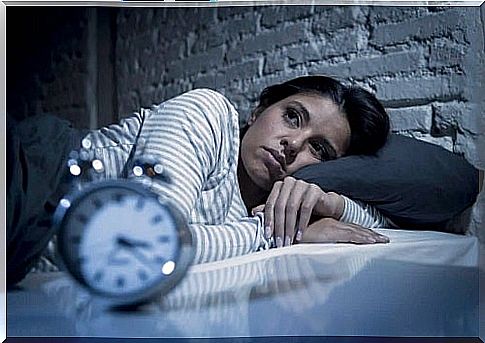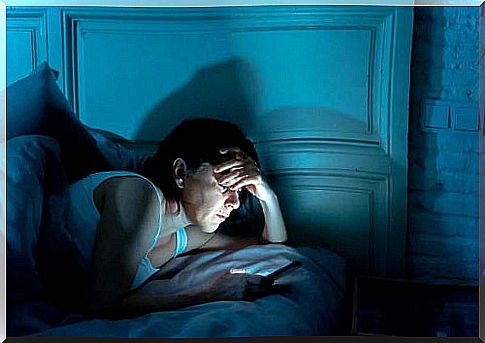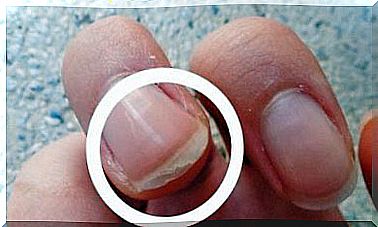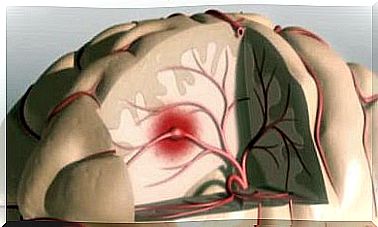Anxiety At Night: Causes And Remedies

Anxiety at night is the sensation of tension and restlessness at night, which occurs especially when trying to fall asleep. The influx of negative thoughts at night often triggers anxiety because the brain thinks you are in danger.
Consequently, the brain responds to this perceived threat by entering survival mode, which triggers physical and mental symptoms. If these symptoms do not seem to go away or if they get worse, they can cause serious damage to mental and physical health.
What is anxiety at night?
Nocturnal anxiety is an emotional state of anxiety that causes tension, stress and worry. Any perceived danger or threat can trigger anxiety, resulting in physiological and cognitive reactions and even behavioral changes. As the name suggests, this condition occurs at night.
An interesting fact about anxiety is that it serves a purpose and exists to help us adapt and survive. Anxiety is a defense mechanism that helps us cope with life-threatening situations. However, the brain cannot tell the difference between real and false threats (which can even be intrusive thoughts), causing stress and anxiety.
The brain responds to false alarms (threats that do not really exist) or overestimates the current danger. If you suffer from intense anxiety at night or if the anxiety lasts for a long time, you may have a pathological condition, also known as an anxiety disorder.
Anxiety disorders block healthy responses to everyday situations, cause psychological discomfort, affect the ability to function properly, and generally require medical treatment. Nocturnal anxiety can lead to lack of sleep, which in turn can amplify these everyday problems.

What are the symptoms?
What are the causes?
How can you relieve anxiety at night?
Physical activity helps the body release tension. If you try to do certain exercises about two hours before bed, you will feel more tired and fall asleep more easily.
Similarly, meditation and yoga are two options that try to teach people to focus on the current place and time. This can be useful in preventing anxiety, but also as a tool to stop a panic attack. Moreover, doing a few stretches before bed can help release tension.
Muscle relaxation techniques and deep breathing exercises are useful alternatives. These exercises can relieve muscle tension and help you avoid hyperventilation, two common symptoms of panic attacks.
Establishing a sleep program by going to bed at the same time every night will condition your body to expect rest. Set an hour to turn off electronic devices and avoid using the bedroom to work or study, which can train the brain to associate the room with stress.
Similarly, you should stay away in the evening from stimulants such as alcohol and caffeine. They can create anxiety due to their effects on the nervous system.

Before going to bed, try to think positively
We are susceptible to negative thoughts even before we go to bed at night. This is the time of day when the mind is free to wander. Negative thoughts can occur and make us feel anxious.
If nocturnal anxiety becomes frequent and intense, it can be dangerous to health. Therefore, it is important to recognize the problem in a timely manner and look for the right tools to help you overcome your anxiety.









